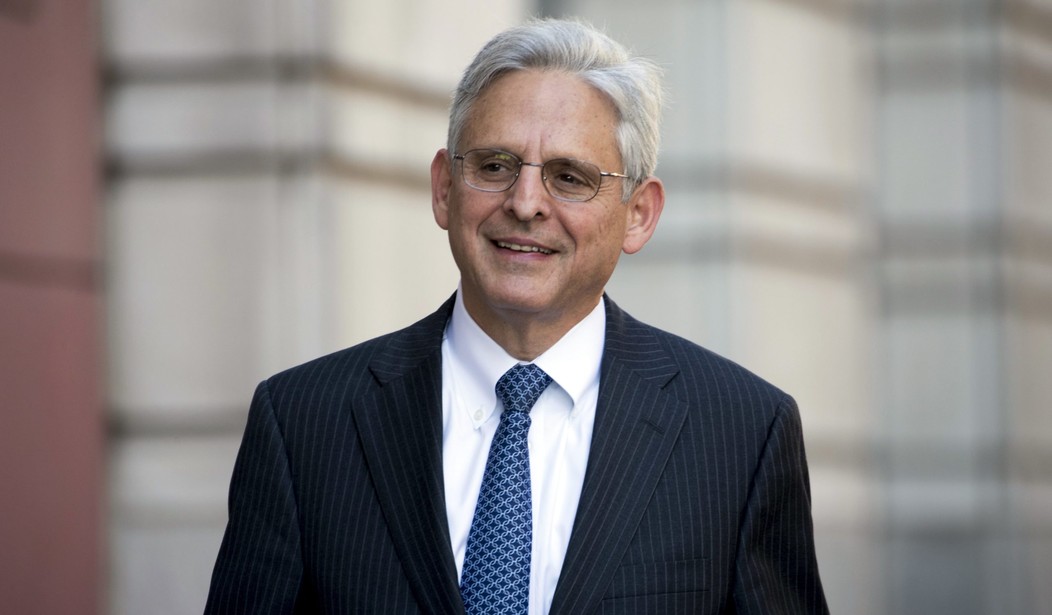Lots of noise on Twitter and in the left-leaning opinion precincts still bemoaning the failed nomination of Judge Merrick Garland to the Supreme Court, and the “theft” of his seat, which was essentially pocket-vetoed by Mitch McConnell in 2016. Following what’s become known as the Biden Rule, McConnell declined to bring the nomination to the Senate floor, and it expired along with the Obama presidency and the Hillary Clinton candidacy that fall.
As a senator more than two decades ago, Vice President Joseph R. Biden Jr. argued that President George Bush should delay filling a Supreme Court vacancy, should one arise, until the presidential election was over, and that it was “essential” that the Senate refuse to confirm a nominee to the court until then.
Mr. Biden’s words, though uttered long ago, are a direct contradiction to President Obama’s position in the battle over naming a successor to Justice Antonin Scalia.
Mr. Obama has said it is his constitutional responsibility to name a successor to Justice Scalia, who died Feb. 13 at the age of 79. The president has reacted with incredulity to the suggestion by several Republican presidential candidates and senators, including Senator Mitch McConnell of Kentucky, the majority leader, that the decision should wait until after Mr. Obama has left office. “Historically, this has not been viewed as a question,” Mr. Obama said last week. “There’s no unwritten law that says that it can only be done on off years — that’s not in the constitutional text.”
But in a speech on the Senate floor in June 1992, Mr. Biden, then the chairman of the Judiciary Committee, said there should be a different standard for a Supreme Court vacancy “that would occur in the full throes of an election year.” The president should follow the example of “a majority of his predecessors” and delay naming a replacement, Mr. Biden said. If he goes forward before then, the Senate should wait to consider the nomination.
“Some will criticize such a decision and say that it was nothing more than an attempt to save a seat on the court in hopes that a Democrat will be permitted to fill it, but that would not be our intention,” Mr. Biden said at the time. “It would be our pragmatic conclusion that once the political season is underway, and it is, action on a Supreme Court nomination must be put off until after the election campaign is over.
“That is what is fair to the nominee and essential to the process. Otherwise, it seems to me,” he added, “we will be in deep trouble as an institution.”
Well, as with everything else the Democrats do, that was then and this is now. With Kavanaugh on the bench, and Democrats making brave noises to fight him til the last dog dies, let’s go back to see what all the retroactive fuss is about, shall we? As I wrote in April 2016 in the New York Post:
Democratic candidates and the liberal media agree: the GOP’s insistence on waiting until the next president to fill Antonin Scalia’s vacancy on the Supreme Court is horrible — and will certainly hurt them in the fall election.
I offer an opposing view: No one cares.
Oh, when asked in a recent Pew poll, respondents favored confirmation of proposed candidate Merrick Garland by a 46% to 30% margin. But no figures are available as to how many could pick the current chief judge of the DC court of appeals out of a lineup. Or if the name “Merrick Garland” ever crossed their mind when they weren’t asked about him by a pollster.
In a contest that likely will pit a volcanic New York businessman/reality star or the Canadian-born, Texas-bred evangelical vs. the Mao-pant-suited Dowager Empress of Chappaqua or the Brooklyn-born “democratic socialist” currently representing gun-friendly rural Vermont, the electorate have bigger fish to fry.
As indeed they did. I don’t recall Hillary or any other Democrat waving Garland’s bloody shirt during the campaign, and crying out to the heavens for revenge, as they’re doing now. But now they care!
The pressure to appoint him is a political campaign, orchestrated by the bully pulpit of the White House, amplified by Beltway media types. Republicans are right to resist it — and rightly argue that the confirmation of the swing vote should wait until after the election.
After all, Article 3 of the constitution, which establishes the Supreme Court, is silent on its numerical composition, and leaves the rest (including the entire federal judiciary) up to Congress. Indeed, there’s nothing in the founding document that sets the number of justices at the now-traditional nine, which dates from 1869. It’s been as low as six, and as high as 10; during the New Deal, a stymied FDR proposed raising it to 15, but Congress declined.
This transparent lame-duck electoral gambit is an offer the GOP can easily refuse. After all, while the Senate must give its “advice and consent” to significant appointments, there’s no rush and no timetable. Indeed, eight of the last 38 court nominations have failed for one reason or another and there hasn’t been a justice nominated by a Democrat president and approved by a GOP-held senate since 1895.
Hey — any stick with which to beat Trump and Kavanaugh at this point. It wasn’t the GOP that eliminated the filibuster for federal judges, it was Harry Reid; all McConnell did, when it came time to ratify the choice of Neil Gorsuch to the high court, was to extend Reid’s principle to the Supreme Court itself. Sure, the vote was 50-48, but close only counts in horseshoes and hand grenades. And that’s why Brett Kavanaugh is now sitting in Justice Scalia’s Kennedy’s seat — which, when you stop to think about it, was actually Robert Bork’s seat.









Join the conversation as a VIP Member